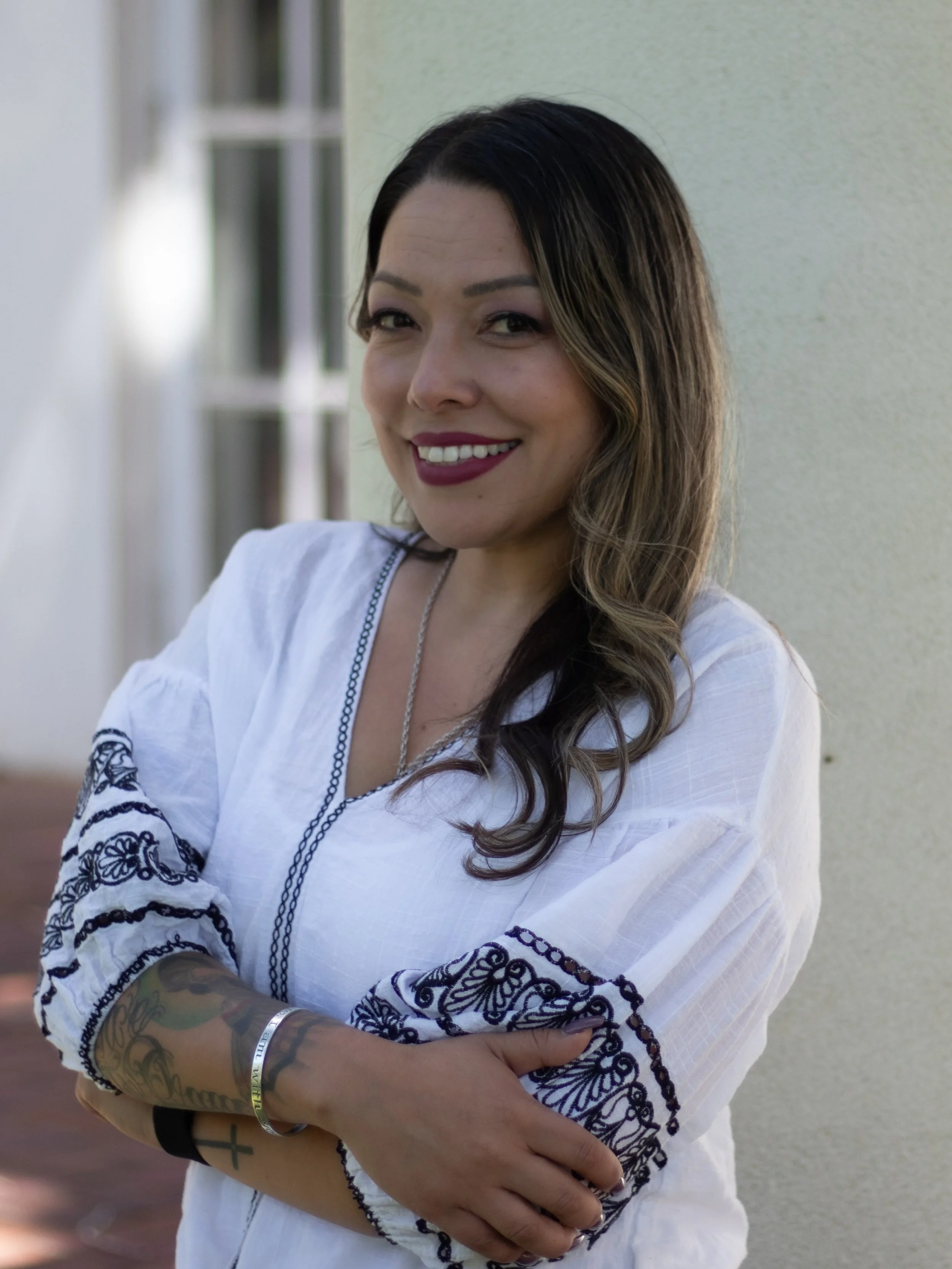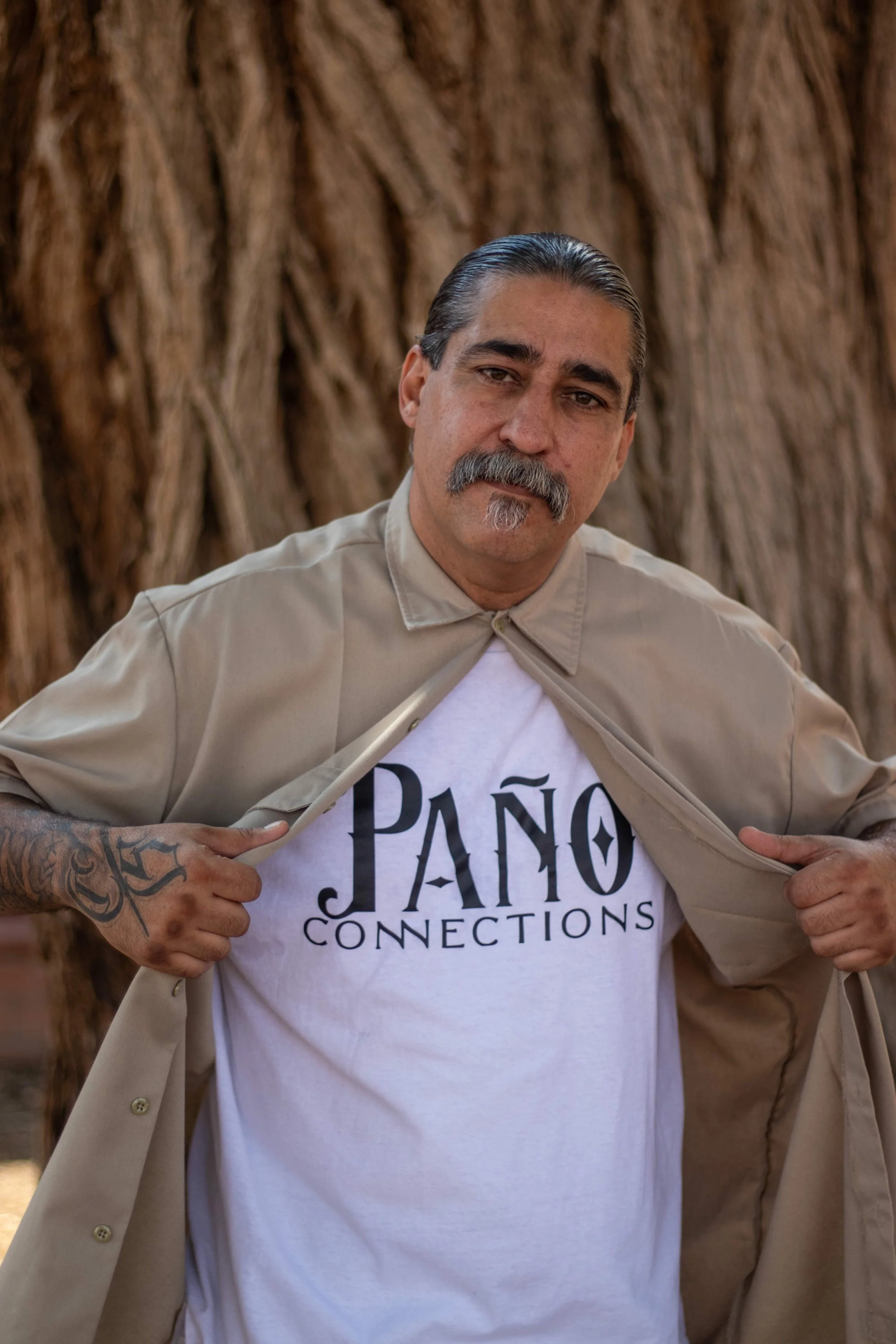Award Recipients
“Re-Storying the West” provides awards to University of Wyoming faculty ranging from $500 to $4,000. We offer our support for compelling projects that feature humanities methodologies and celebrate public partnerships as central to the shared process of making knowledge about our worlds. We extend our sincere gratitude to the public partners, community members, faculty, staff, and students who do this work.
Practices in Place
Maggie Bourque
Senior Lecturer
Haub School of Environment and Natural Resources
Building from her 20 years of experience as a place-based educator, Maggie Bourque saw an opportunity to increase access to experiential learning opportunities that help people connect more deeply with their places. The project, "Practices in Place," combines concepts and practices to prompt connection. The invitations to practice typically found in field courses or classroom environments are translated into self-guided opportunities to learn about ourselves and the worlds we inhabit through wonder, observation, and creative expression.
The practices combine natural science methods like phenology (the ecological study of cyclical patterns and events in the natural world) with humanistic, artistic, and social scientific approaches to reading our interior and exterior landscapes. Naturalist skills like field observation and landscape reading combine with social science methods such as participant-observation, autoethnography, and qualitative coding. Humanistic and artistic approaches of rhetorical analysis, rich description, critique, field sketching, and improvisation add to the toolkit. Additional techniques include deep looking, semi-structured interviews, imagined dialogues, field notes, nature journaling, creative nonfiction, poetry, mapping, scholarly literature review, photography, and audio/video recording.
To learn more about this project, contact Maggie Bourque at maggie@uwyo.edu.
Prison Art:
Restoring Lives From the Inside Out
Trisha Martinez
Assistant Professor
Department of American Cultural Studies
Eric Martinez
Founder and Curator
Paño Connections
No one ever really considers the weight or limitations of incarceration, until it is your loved one behind bars, or your own personal experience. To survive is a testament to resilience and to thrive and create art through profoundly difficult experiences and in such limiting environments attests to a person’s indomitable spirit. Providing a lens to the heart of incarceration and the transformative power of prison art is a critical and meaningful endeavor because of the extensive reach of incarceration in the United States.
Dr. Trisha Martinez is faculty for the Wyoming Pathways from Prison (WPFP) Program, engaging in a scholarly and community-based exploration of the creativity that emerges from confinement. This work has led to a partnership with Paño Connections and founder/curator, Eric Christo Martinez. Paño Connections is a public humanities initiative focused on collecting, preserving, and sharing art and stories from incarcerated and formerly incarcerated individuals. Through creative writing and artistic expressions, students, people incarcerated and formerly incarcerated engage in self-reflection and self-discovery with the potential for transformation from within and beyond prison walls.
To learn more about this project, contact Trisha Martinez at tmarti40@uwyo.edu.
The Hunting Language Project
Nikolas Sweet
Assistant Professor
Department of Anthropology
What is gun culture? Beyond the physical act of shooting or hunting, what significance do firearms hold for people’s life worlds? This research project applies tools from the field of linguistic anthropology to examine the cultural aesthetics of guns and hunting in the United States. To begin, Nik Sweet suggests that hunting can be usefully viewed as a linguistic practice rather than only a technical skill. Drawing a comparative anthropological lens to divisive issues, this project views firearms and hunting as sites of political distinction whose cultural aesthetics and linguistic performance linger unexamined in plain sight. With a focus on linguistic practice, Sweet studies hunting and gun ownership ethnographically to uncover entanglements with other dimensions of everyday life—how they animate imaginaries of the future, offer a toolbox for becoming a person, or are organized in social interactions. He views these issues not merely as problems to solve, but as a domain of meaning to make sense of. The research team is conducting interviews, audio recordings, and photography to try to capture the richness of contemporary hunting in Wyoming.
Nikolas Sweet is broadly trained linguistic anthropologist, he seeks to understand the significance of everyday interactions. Author of The Verbal Art of Mobility in West Africa (Indiana University Press, 2024), Sweet's previous research has investigated mobility and migration, social interaction, and performance in Senegal, West Africa, where he works in the local languages of Pular, Wolof, and French. Sweet's new line of research investigates the linguistic dimensions of hunting across the American West, Germany, and West Africa.
To learn more about this project, contact Nikolas Sweet at nsweet1@uwyo.edu.
Re-Storying Wyoming's Sacred Sites
Tammy Heise
Assistant Professor of American Religions
Department of Philosophy & Religious Studies
This project took inspiration from that Boston's Hidden Sacred Sites to encourage students to re-story histories of sacred sites in Wyoming. Heise encouraged students to consider sites beyond conventional church buildings and to think beyond existing narratives concerning their histories. This project took two parts--one focused on university students in Heise’s Religion in the American West class and the other focused on 4th and 5th grade students at the University Lab School. In both cases, she helped students research sacred sites using collaborative rather than extractive historical and religious studies methodologies to tell more nuanced stories about these places and the communities that hold them sacred.
To learn more about this project, contact Tammy Heise at theise2@uwyo.edu.
Wyoming Betabeleros’ News:
La Página en Español of the Powell Tribune
Chelsea Escalante
Associate Professor of Spanish
Conxita Domènech
Professor of Iberian Literatures & Cultures
Department of
Modern & Classical Languages
During the 1920s, Mexican and Mexican American laborers arrived in the Great Basin region to meet the growing demands of the sugar beet industry. Despite their critical contributions to Wyoming’s economy and the formation of its early Spanish-speaking communities, the Betabeleros have been largely absent from public discourse. This project highlights their pivotal role in shaping the state’s social, economic, and linguistic history. A cornerstone of this research has been the rediscovery of La Página en Español, Wyoming’s first Spanish-language newspaper, printed in 1927. This publication provides valuable insights into the lives of the Betabeleros, illustrating both the hospitality and segregation they experienced within Anglo communities.
To learn more about this project, contact Chelsea Escalante at cescalan@uwyo.edu.
Robbie’s House
Matthew Greenberg
Assistant Professor of Theatre Performance
Department of Theatre & Dance
Matthew Greenberg specializes in musical theatre, voice, speech, and acting. With his "Re-storying the West" award, he worked with his community partner, Debra Hinkel, undergraduate students, graduate students, faculty, and community leaders to create a verbatim theatre project based off an interview with Debra Hinkel around the Laramie Police involved shooting of her son, Robbie Ramirez. Using Debra's own words as the play text, we discovered how we memorialize those we've lost, while dealing with themes of grief, police relationships, race, and mental illness to live in the "in between spaces" where these topics have previously pushed people into opposing polarity opinions. Matthew is very grateful to The Neltje Center for Creativity and Excellence in the Arts for allowing him to host the premiere of this play, which was devised over the course of the Spring 2025 semester with his collaborators.
To learn more about this project, contact Matthew Greenbergat mgreenb1@uwyo.edu









